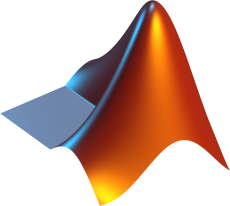Data Analysis, Modeling, and Controlling Particle Accelerators with MATLAB
Researchers and scientists are integrating AI with physical modeling and Model-Based Design to achieve groundbreaking advancements in sensing and control. Learn how other physics facilities are using MATLAB and Simulink for modeling and simulating particle accelerators and how you can analyze and model data using interactive tools in MATLAB. We will show you how to solve many steps in a data analysis workflow without writing any code. The interactive tools can generate the code you need to reproduce your work programmatically and how to take advantage of additional hardware resources that may be available locally, on clusters, clouds, or grids. To learn more or to register, please visit:
Data Analysis, Modeling, and Controlling Particle Accelerators with MATLAB.
- Date: Thursday, August 29, 2024
- Time: 10:00 AM – 12:00 PM
- Location:
- The seminar will be held in-person and online. >>REGISTER HERE
- In-person (for folks who have LBNL site access):
- Lawrence Berkeley National Lab: Building 59, Room 3101
- Virtual connection details will be shared after registration.
- In-person (for folks who have LBNL site access):
- The seminar will be held in-person and online. >>REGISTER HERE
Overview:
Low Code Data Analysis (10:00 AM - 10:30 AM)
- Use interactive tools for data visualization, cleaning, and modeling
- Automatically generate the code to replicate your interactive work
- Capture your work in easy-to-write scripts and functions
- Share your results with others by automatically creating reports
Modeling and Controlling Particle Accelerators (10:30 AM - 11:15 AM)
- MATLAB and Simulink for modeling and controlling particle accelerators.
- Implementation of digital twin of EM cavity resonator.
- Model-based design and AI: MATLAB and Simulink with Python.
- Open MATLAB-Based Community Toolboxes for physical modeling.
High performance computing (11:15 AM – 11:45 AM)
- Speeding up serial MATLAB code
- Leveraging multiple CPU cores and GPUs
- Scaling up to clusters, grids, and clouds
About the presenters:
- Dr. Reza Fazel-Rezai is a Senior Science and Education Application Engineer at MathWorks. He holds a Ph.D. in Biomedical Engineering with over 20 years of industry expertise as a senior research scientist and research team manager, and academic experience as the founding Director and tenured Professor of Biomedical Engineering. With over 190 scientific publications, six edited books, and extensive research interests in biomedical signal and image processing, he has become an expert in pattern recognition methods, particularly in machine learning and deep learning approaches. He is passionate about utilizing and sharing his skills and knowledge to assist others in achieving their goals and objectives and helping them succeed.
- Temo Vekua, PhD is the Physics manager at MathWorks with extensive experience in modeling quantum many-body systems. Before joining MathWorks, Temo worked at the University of Indiana, Bloomington, studying the effects of dualities in low-dimensional systems.
To learn more about using MATLAB and Simulink at physics research labs, please visit: MATLAB and Simulink for Physics.
Materials
The session was not recorded, but you can view the presentation materials for the event at https://content.mathworks.com/viewer/66e0bce09085b30906243aac
You can also visit these links to view similar sessions:








